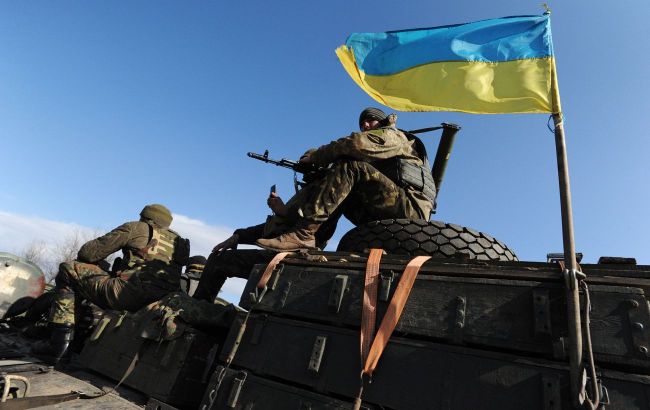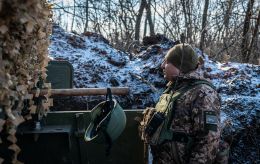Ukrainian counteroffensive: change in Russian information policy revealed by ISW
 Ukrainian military (Photo: GettyImages)
Ukrainian military (Photo: GettyImages)
In a recent report by the Institute for the Study of War (ISW), analysts have examined Russia's attempts to exaggerate losses suffered by the Ukrainian Armed Forces during a counteroffensive.
The segments of Russia's belligerent ultranationalism information space have joined Kremlin's efforts to portray the Ukrainian counteroffensive as unsuccessful.
According to the report cited by RBC-Ukraine, Russian "war correspondents" and various "Z-patriots" are increasingly and significantly exaggerating the losses allegedly sustained by the UAF, while downplaying the losses and issues faced by the Russian Armed Forces.
Prominent Russian bloggers are now frequently misrepresenting Ukrainian counteroffensive operations as a series of unsuccessful attacks along the entire frontline.
Experts point out that Russian bloggers widely circulated footage from July 29, claiming it showed a Russian tank allegedly annihilating an entire Ukrainian unit with armored vehicles recently. However, the footage was actually shot on June 7 and depicts Russian artillery units striking a Ukrainian military convoy.
Previously, Russian sources re-aired old footage to support claims of significant losses of Ukrainian armored vehicles. The increased circulation of videos on July 29 indicates that Russian sources intentionally amplify old footage to back the Kremlin's version of events.
The report mentions that Russian dictator Vladimir Putin also recently claimed that the UAF lost 39 armored units over a few days of fighting in the western part of the Zaporizhzhia region, further suggesting a change in Russia's war narrative.
ISW experts believe that the Kremlin may be altering its approach to war coverage to diminish the potential success of the UAF's counteroffensive and position itself as an effective military leader.
Despite this change, Russian "war correspondents" continue to report on local advancements made by the UAF and some problems faced by Russian defense operations. However, the broader portrayal of the Ukrainian counteroffensive in Russia's information space aligns with the Kremlin's likely attempt to change the narrative.
Key findings:
- Some Russian bloggers may be shaping a broader narrative of the Ukrainian counteroffensive, possibly fearing the Kremlin's punishment after the arrest of war criminal and blogger Igor Girkin.
- The Kremlin's ability to create a more coherent war narrative in the Russian information space remains uncertain, and Russia's further failures or significant successes by Ukraine may undermine Kremlin's efforts.
- On July 29, the UAF conducted counteroffensive operations on at least three fronts and made advancements in some areas.
- Ukrainian forces likely attacked the Russian military and rear objects in the occupied Crimea on July 28 and 29.
- On the evening of July 28, Russian forces launched a missile strike on the city of Dnipro.
- Russian forces conducted offensive actions on the Svatove-Kreminna and Avdiivka-Donetsk fronts, claiming advances on the Svatove-Kreminna front.
- Ukrainian forces launched offensives along the western borders of the Donetsk region and the eastern part of the Zaporizhzhia region and also advanced along the western borders of the Donetsk region and the eastern part of the Zaporizhzhia region.
- Russian forces conducted offensive operations along the western border of the Donetsk region and the eastern part of the Zaporizhzhia region and to the south of Orikhove, but no confirmed or claimed breakthroughs were made.
- In the Ukrainian report, it is mentioned that the Russian occupation "authorities" continue their efforts to mobilize residents in occupied territories of Ukraine to replenish their own combat losses.
- The Russian authorities continue forcibly deporting Ukrainian children from the occupied areas of Ukraine to Russia under the pretext of "recreation and rehabilitation" programs.
Ukrainian counteroffensive
Recently, Russian occupiers claimed that their forces had forced the UAF to retreat several kilometers, abandoning three small settlements. However, this information has been refuted by the Ukrainian Defense Forces.
Meanwhile, The New York Times reports that the Ukrainian Armed Forces' advance near Kreminna in the Luhansk region will disrupt Russian logistics. Following this, there will be an opportunity to enter the rear of Bakhmut.

